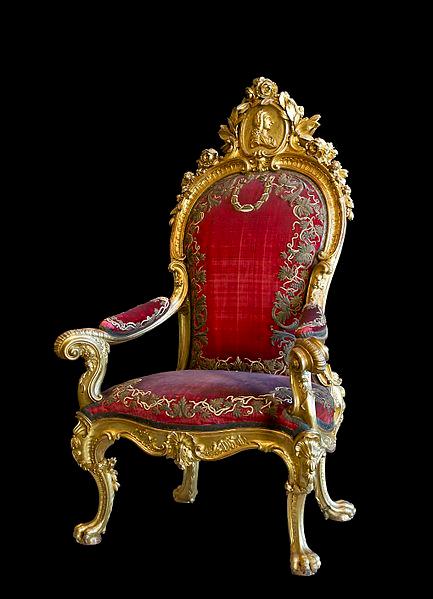Unseated: Citizens stop lawmakers from buying lavish new seats
Kyrgyzstanis launched a social media campaign this week complaining about expensive chairs bought by their parliament.
Kyrgyzstan, one of the few corners of ex-Soviet Central Asia where civil society can still effect change, did something big this week.
Following a social media-driven campaign to prevent the government spending around $40,000 on new seats for the incoming Kyrgyz parliament, the parliament's administration has squashed the bid for the seats and decided the old ones are fine after all.
Some context is needed here.
Firstly, many Kyrgyzstanis had a difficult time believing that the smart-looking chairs bought for parliamentarians in 2010 were actually worn out, as one parliament official had argued. Kyrgyz MPs are notorious for not showing up to work, with half the parliament frequently absent from sessions. This means some of the chairs will have hardly seen any action at all in the past five years. Secondly, a number of people suspected potential corruption surrounding the bid process.
Thirdly, $40,000 is not a trifling sum in a country where the average wage hovers somewhere around $200 per month.
What emerged in response to news of the tender was the #120кресел hashtag, with which Kyrgyz citizens posted pictures of all kinds of chair photos and ironic comments.
Many of the images featuring the hashtag were a not-too-subtle nod in the direction of the chasm separating privileged lawmakers from the common folk.
Later there followed an even more poignant response to the new-chair announcement: a petition that grew up on Avaaz.org demanding government use the funds to update equipment in cancer treatment centers instead of spending them on chairs.
The authors of the petition wrote: "The ease with which funds are allocated from the state budget to the tune of 2.6 million soms [around $37,000] to upgrade chairs, suggests that cancer patients in our country still have hope of receiving adequate treatment. You just have to dispose the people's money wisely"
The noisy campaign did not go unnoticed by international media, winding up on the BBC's News from Elsewhere blog.
Bektour Iskender, co-founder of the local youth media portal Kloop.kg, claimed the parliament's decision to drop the try for new seats as a victory for the public over officialdom: "One of the best pieces of news this week and a small victory for civil society over the foolishness of some parliamentary ideas. I hope that it is far from the last victory of this type."
Two years ago Global Voices covered a similar kind of campaign in Kazakhstan that came as a response to a minister's gaffe at a time when the Kazakh parliament was debating a bill on raising the female pension age. The campaign did achieve amendments to the bill, but the government remains committed to raising the retirement age over time.
This week, Global Voices looked at an online attempt to save historical buildings in the Tajik capital Dushanbe, which looks doomed to fail in a country where civic-minded initiatives face an ever more constricted political space within which to work.
Sadly, in the region's two most relentlessly authoritarian states, Turkmenistan and Uzbekistan, such campaigns would struggle to even get off the ground.
This story was cross-posted from Global Voices, a community of hundreds of bloggers worldwide.
The story you just read is accessible and free to all because thousands of listeners and readers contribute to our nonprofit newsroom. We go deep to bring you the human-centered international reporting that you know you can trust. To do this work and to do it well, we rely on the support of our listeners. If you appreciated our coverage this year, if there was a story that made you pause or a song that moved you, would you consider making a gift to sustain our work through 2024 and beyond?
